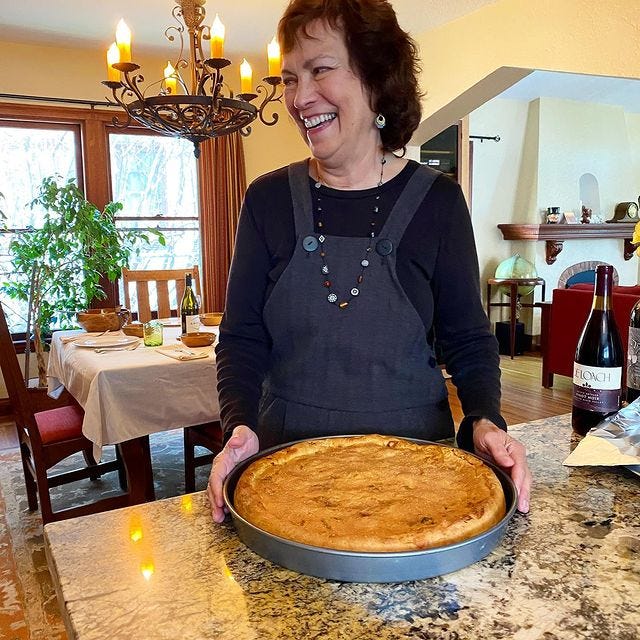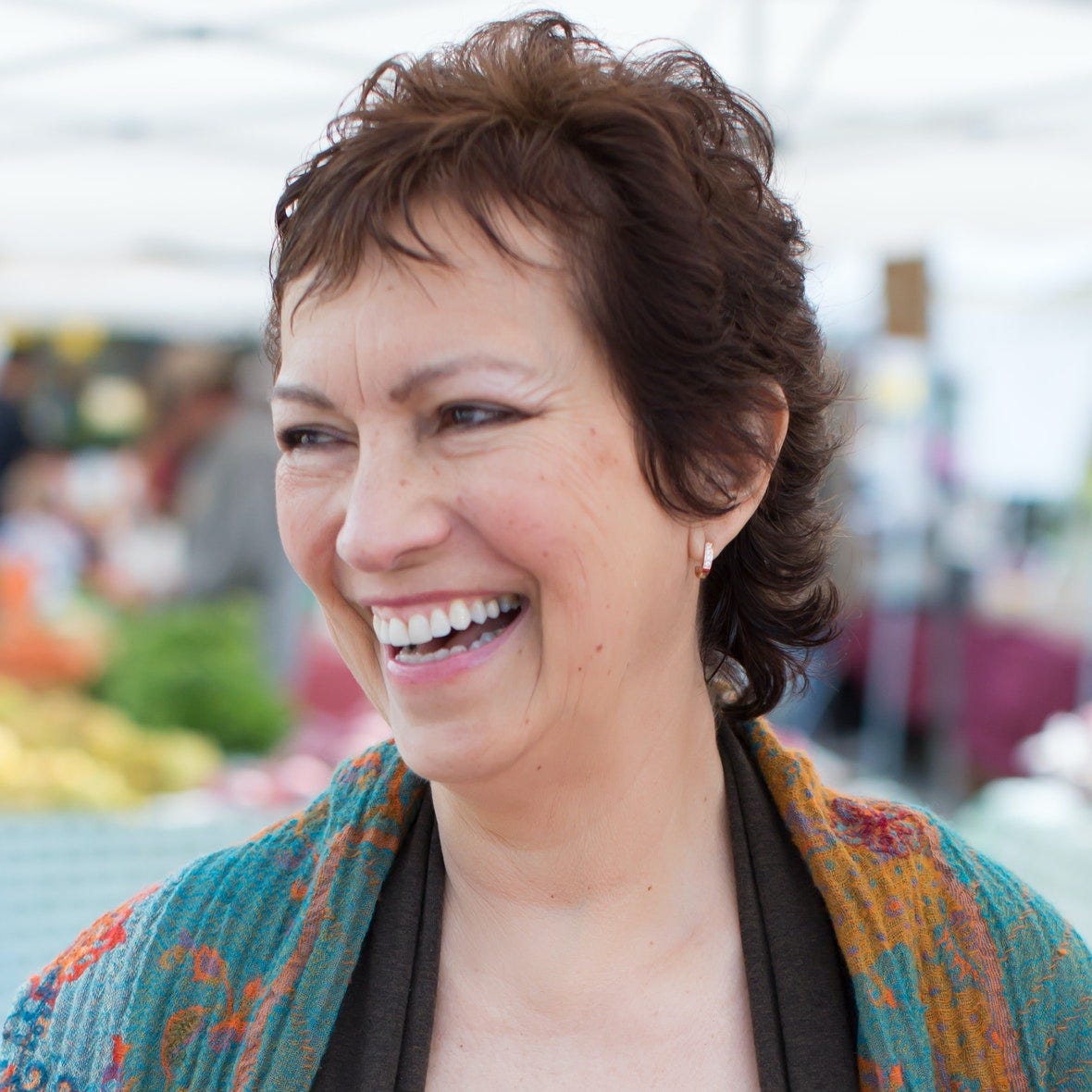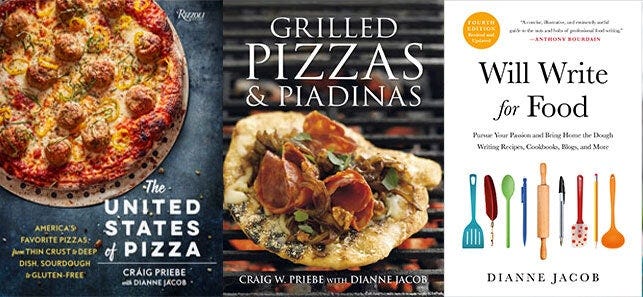Back in 2000 I read a rant by Judith Jones, the famous cookbook editor of Julia Child, Claudia Roden and other superstars. She wrote it for the IACP quarterly newsletter. Here’s the lede:
“I have been increasingly concerned as I read through cookbooks these days that recipe writing is almost a lost art. Instructions have been reduced to a meaningless and frequently illiterate formula that neither serves the wood-be cook nor conveys anything of the pleasure of cooking.
For example, a typical recipe will start with this kind of so-called instruction. ‘In a bowl, combine the eggs and the sugar.’
Why does 'In a bowl’ come first? No one talks that way. Would you say, ‘In a suitcase, pack your clothes?’”
She ends by appealing to recipe writers to stop it.
“Why are food writers being encouraged to write recipes in the kind of lackluster language we are seeing today? There is no personality to this kind of writing…Food writing at its finest is sensuous, immediate, and sharply observed. I’d like to see the same applied to the art of recipe writing.”
Since then, I’ve advised clients and students to avoid this kind of language. Instead, I ask them to start with an action verb and to write in a conversational manner. Here’s a little more from Jones:
“I as a cook working alone with a cookbook in my kitchen want to feel there is a person standing behind the recipe, someone who has done it many times and is really conveying to me how the dish should look and feel and taste, inspiring me to give it my best. Each writer should be using her or her own carefully chosen words that reflect the experience of cooking.”
When I expressed on Twitter that “In a bowl, combine…” makes me unhappy, people objected. Elise Bauer, founder of Simply Recipes, tweeted:

Others concurred.

And I learned that “In a bowl, combine…” is house style at two publishing houses!

The problem is that this equipment-first argument isn’t consistent. We don’t write “In a saucepan, add the oil…” or “On a plate, add the flour...” Elise later responded:

Well, I’ve read lots of bad instructions over the years, usually when sitting on the floor assembling furniture. And I don’t think there’s anything unclear about “Combine the flour and spices in a medium bowl.”
But the bigger takeaway is that recipe writing is not just about instructions, but about writing that shows how the author enjoyed cooking a dish. It’s about voice and personality. I’m pretty sure that’s what Jones was trying to say. And it’s why her authors wrote legendary books that are still famous today.
(Photo courtesy of Monica Grabkowska on Unsplash.)
What I’m eating:
Instagram readers loved this deep dish Reuben pizza with a double crust, a recipe from the cookbook I co-wrote, The United States of Pizza. Click on the image to see the post and comments.
News about Moi
Will Write For Food won another national award! Nautilus Book Awards announced that the 4th edition of my book, Will Write for Food, won a Silver Nautilus award. Every edition of my book has won at least one national or international award.
I was a guest on this podcast from Salt + Spine: Publishing experts demystify how a cookbook gets published. (That’s me and producer Clea Worster.) You’ll also hear from literary agents Monika Woods and Rica Allanic. It’s the last of a four-part series on cookbooks behind the scenes, so also listen to Episodes 124-127).
On My Blog
How to Become a More Productive Book Author. Andre Darlington wrote two books during the pandemic in 2021. Three of his books launched this year, and he’s on track to publish two more in 2023.
Classes and Events
So You Want to Write a Cookbook?
Civic Kitchen Zoom class
Sunday, June 26, 2022, 10 a.m. - 1 p.m. PT
$135
Time to write your dream cookbook and get it published? This class lays out what you need to know about publishing and the process, whether you want to be traditionally or self-published. You'll learn how the industry works, decide whether you need an agent, and discover what makes an irresistible cookbook idea. You'll put your skills as a recipe editor into action.
Private Consult
Delicious Experiences
One-hour consult: $250
For years I've had a five-hour minimum for consulting. But now, through Delicious Experiences, you can book a Zoom call with me for just one hour or more. If you’ve wanted to start on your dream cookbook, get your book published, or get better freelance assignments, let’s move you forward . I’ve talked with writers at all levels about a variety of food-writing topics.
What I'm Reading
Professional Jealousy. An agent tackles the topic and it’s more relatable than I would like.
‘Kiss The Cook’ Premiere Streaming. A new TV show explores how “A popular food blogger is asked to write a cookbook but can’t really cook.” A male cook saves her and they fall in love. I have serious issues with this premise.
Cookbooks As Archives of Taste, Feelings, Flavours, And Politics. Outlook India explores how cookbooks cater to the wealthy in a country with massive poverty.
The Statesman's cookbook history now lives in the Austin Public Library cafe. The Austin newspaper donated its collection.
How long does it take to master a recipe? Pati Jinich talks about how long it takes to get it right, and what she gets out of the process.
The Numbers Driving New Cookbook Deals. A good story about what’s it’s like to get a deal today.
Yum? Some of the most ridiculous cookbooks to ever exist. I don’t agree. I have one of these (the Dali cookbook)!
Co-authors of a cookbook called Keepers are not happy that it’s the title of Deb Perelman’s new book, and that the covers are strikingly similar.
IMHO: A Nuanced Look at Hybrid Publishers. Thinking about using a hybrid publisher instead of self-publishing? Jane Freedman gives you her take.
I want more angry food writing. Dr. Cynthia Greenlee makes a good case on Twitter.
News About Clients and Students
(I like to brag about food writing accomplishments here. Send me an email: dj@diannej.com.)
The authors of Babka, borscht … and pumpkin spice? Two writers talk about Jewish identity through contemporary cookbooks including Faith Kramer’s cookbook 52 Shabbats.
Kate Ryan wrote this piece about Irish food for the Vittles newsletter.
Thanks for Reading
Did you like what you read here? Please forward it to a few people or share on social media. It really helps! New subscribers can sign up here. Thank you.
Dianne Jacob
Editor, Writer and Coach
Office: (510) 923-1770
Website: http://www.diannej.com
Twitter: https://twitter.com/diannej
Facebook: https://www.facebook.com/foodwriting
Instagram: https://www.instagram.com/diannemjacob/
My Books
Will Write for Food: 2021 4th Edition
Disclosures: I am an affiliate of Food Blogger Pro, Amazon and Bookshop.org.









When you write a recipe, you want to feel like you're talking to your reader (or cook or baker), talking them through the recipe, in language that's easy to understand and follow along with. There's a way (and a reason, for some) to write dry, formulaic recipes without any hoopla. Magazines and newspapers often do it, where space is a consideration, and will write; Step 1: Combine (or mix) the eggs, sugar, butter, flour and salt in a bowl. Step 2: Add the remaining ingredients. But I think most readers like it when they hear the author's voice while they're making a recipe, whether it be Rose Berenbaum or Ina Garten, who both write different kinds of recipes, but who also both have plenty of fans.
Oh, this was thorough and fabulous!! (as usual)